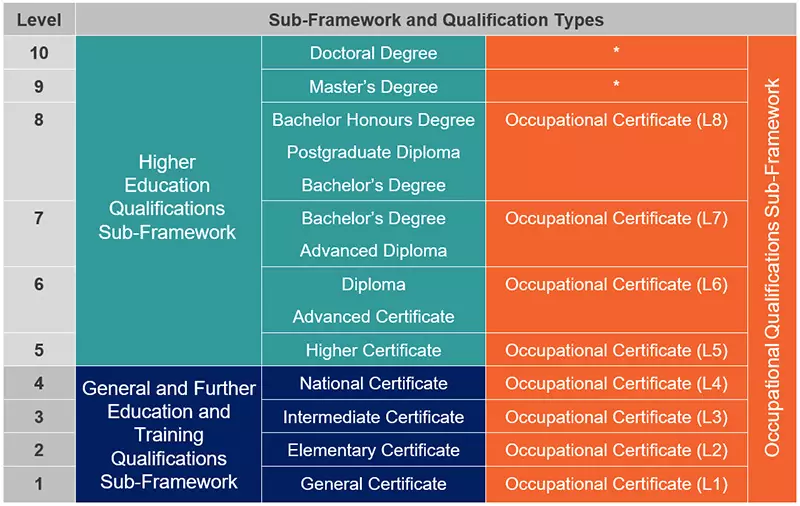Pragma’s contractors are not faceless service providers. We see them as collaborators, and we focus on building strong relationships with them based on a shared vision. Liza Schroeder, Pragma’s Brand and Communications Manager, recently spoke to Pragma’s Managing Director, Attie Nieuwoudt, about what goes into developing these solid partnerships, and how Pragma is redefining what ‘successful’ collaboration means in the prevailing economic climate.
The typical definition of a partnership is an arrangement where business partners agree to cooperate to advance their mutual interests. Considering Pragma’s service delivery model, how would you define a partnership?
For me, a partnership is a bit more than the typical definition, especially with the current economy. Everybody is struggling. Our clients are struggling. The lingering effects of the Covid-19 pandemic, the war in Ukraine, and the difficulties we face in South Africa, such as load shedding, make it a very tough economic climate. So although our clients are expecting more, they can’t afford to pay more. A real partnership in this situation is about ensuring that we understand what our clients need and that our contractors, who are our partners, understand what we need and are struggling with.
The way our partnerships look these days is that our clients are prepared to be flexible and explore how to achieve their goals in ways that will make everyone’s lives easier. What we are managing to get right with our partnerships is that all three parties – our clients, Pragma as their L2 partner, and Pragma’s L3 contractors – are working together to make each other more efficient and enabling us at Pragma to put more on the table for less. It’s critical to get this right in the current economic climate.
It sounds like Pragma is working hard to ensure that things are done cost effectively and all parties benefit. How exactly does Pragma use contractors as part of the service delivery to clients? Perhaps you can give us a specific example.
We can take the examples of Shell and Astron who have been our clients for quite some time. We are responsible for making sure that their fuel pumps are available and reliable, and if a pump fails, getting it fixed within a certain response time. Pragma executes this but we don’t own the companies that can do the physical work, so this is where we appoint contractors as our partners to do the actual maintenance.
Bringing this back to our partnership model where we are looking for ways to save costs, we know that typically, for this type of client with distributed assets, between 25% and 35% of their maintenance budget goes towards travel costs and travel time. In the past we would have appointed a contractor in support of Shell and a different contractor for the same scope in support of Astron, but now we appoint contractors in support of the whole Pragma group.
If we onboard a contractor to support Shell for example, and we then extend their contract to support Astron, they are already trained up on our business processes. Also, one contractor can drive to a certain location and complete multiple work orders for both Shell and Astron, and maybe even for a retail site like a Pepkor depot. The travelling costs will then be split between the clients, resulting in a significant saving.
The compliance requirements for contractors working on different types of sites would vary. The costs for a specialised contractor might be different to the costs for a normal contractor who doesn’t need permits to work at heights or in contained areas. How then would the costing work for the same contractor going out to clients with different HSSE requirements?
Our HSSE team looked at all the legislation that applies to all our clients and mapped out the common areas. There is a huge overlap! The majority of clients require the same level of safety or legislation, and so we accredit our contractors for that, and then we only need to do additional contractor accreditation for a few clients who need to meet further safety criteria. This is a big saving for us and for the contractors. When it comes to working at heights, we have simplified things, and we now train all our contractors on one standard, which is the tightest control.
Another thing we’ve done is we’ve aligned our accreditation standards with EPCM suppliers, like Redbrick for example, who is our L2 for EPCM work. If Redbrick has onboarded a contractor, we can accept that contractor, and vice versa, because we are both following the same accreditation standards.
You really put in a lot of effort to make sure that it’s easy for contractors to work across industries.
Yes, that is very important for us. And because compliance can create so much paperwork and admin, we’ve transformed all of that into digital format. If we want to onboard a new contractor, we create them in the On Key EAMS as an asset. We use the same apps that we use for site assessments to do accreditation assessments and gap analyses. On one app, the contractor can get a work order, mark it as complete, invoice, and receive a job card if there’s a non-compliance issue requiring action in support of the HSSE standard. That makes it a lot easier for contractors.
Are there any other things that you do for contractors to make it attractive for them to work for us?
We prioritise cashflow, because cashflow problems are causing a lot of companies to close their doors. Our apps enable our contractors to invoice immediately after completing a work order. We can then invoice our clients straight away and as soon as we are paid, we can pay the contractor. The shorter we can make the invoice-payment cycle, the easier it is for the contractor. However, if a contractor makes an error on an invoice or other piece of admin and it has to be redone, that slows things down tremendously. In response to this problem we’ve spent a lot of time and money on identifying where and why contractors are making those mistakes and we’ve created procedures and training to help them.
We’ve also automated the submission process, making it much quicker. We used to have a manual checking system but now everything is done electronically, and even a mistake on a completed work order or an invoice can be picked up by the system and automatically sent back to the contractor to be redone. Another advantage of this automation is that all work orders are checked by the system, so from a governance and compliance point of view, our clients are happy.
Once you’ve trained up a contractor, you would like to retain them and reward them if they’re doing good work. How do you do that?
We’ve started an award system where we acknowledge our contractors during interactions that we have with them on a regional level. For example, we have a partnership award for getting invoicing right first time around, an HSSE award for contractors who are doing well on the work permit side of things, an SLA award, and an award for innovation. We also send contractors a weekly KPI report with feedback on what went well with their work orders and what didn’t, keeping them up to date and informed.
If a contractor would like to work for Pragma, what is the main thing that would help them succeed in their application to become part of the Pragma partner network?
Because our focus is on making life easier for each other so that we can offer more to each other for less, our partners and our contractors must be on board with this goal. Yes, they must believe in our culture and our values, but they must also believe in this partnership drive if they are to become the long-term partners that we are looking for. And they must understand that we all sometimes make mistakes and we get upset with each other, but we will have mature discussions and sort things out.
Also, we are passionate about transformation, doing things for the right reasons and really making a difference. So we need partners who are prepared to focus on diversity and transformation with us. Consistency and quality work are also very important. If there are contractors out there who can identify with these attributes, they are welcome to register on our website as potential suppliers.
For CEOs or MDs of companies looking at outsourcing maintenance management to Pragma and gaining access to our contractor pool, what would you tell them are the advantages of contracting with us?
The reality is that for a lot of our clients, maintenance management, physical asset management and dealing with contractors is not their core business. But it is Pragma’s core business. So the main benefit of contracting with Pragma is that we take care of our clients’ non-core business, freeing them up to specialise in their niche markets.
Another advantage of working with Pragma is that we offer the full value chain. A service like ours needs software, apps, access to training material and accreditation material, a contractor base, planners and schedulers, and so much more. Pragma brings all of this to the table, and at a fixed price. We contract with our clients to meet certain deliverables on an hourly, daily, weekly, and monthly basis, and we make that happen regardless of any internal obstacles we might face. And because we’ve got a lot of these contracts and many standardised processes and systems, we can support each other from other contracts and resources.
I also believe that our focus on long-term partnerships with our clients shows that we’ve got their best interests at heart. Being prepared to optimise the L1, L2 and the L3 level together – and not just optimising our L2 function – is a big differentiator.
And then, of course, we understand the South African environment. We are Level 1 BEE, we are black owned without modified flow-through, and we are 30% black women owned. We haven’t stopped transforming. I think there are many local companies that want to work with a South African company that is serious about our country and rectifying the wrongs of the past.
Thank you, Attie. I can hear how passionate you are about our clients and about making our partnerships work! These are challenging times for many companies, and Pragma is here to help.

